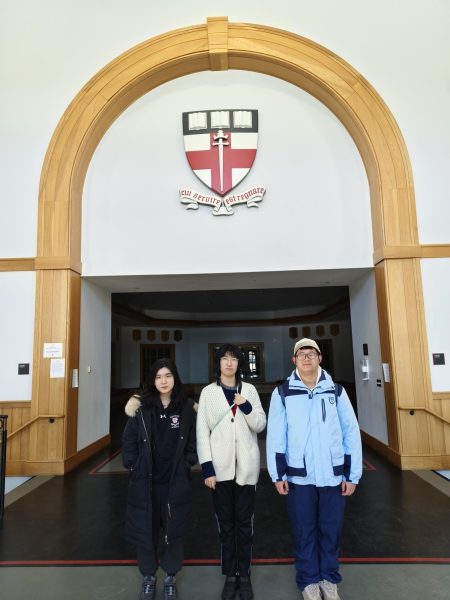Student-Led Sustainability Committee Hopes to Make Groton Greener
Starting April 12, 2018, daily emails full of environmental-minded memes and tips to go green began to come to the inboxes of Groton students and faculty. These emails were sent by the Sustainability Committee, a new group of environmentally-minded students and faculty established by Sandra Redjali, Lucy Gund, Ishana Sen Das, and Fran Saldivar ’19.
These four girls were inspired to create the Committee because they believed that there was no student organization actively working on environmental issues. The crisis of climate change had resonated with them from environmental science classes, and they wanted to initiate the reduction of Groton’s carbon footprint. Sandra says, “there wasn’t much of a way for anyone who was interested to be active if they were passionate about the environment. So we sent out an application for anyone in the community, including faculty, so no one would be restricted from participating if they were interested and dedicated.”
Environmental science teacher David Black is one of four faculty members of the Sustainability Committee. Although he is committed to environmental issues, Dr. Black emphasizes that the committee is student-driven, and he only serves as an advisor.
“Fundamentally,” he says, “Groton School does not have sustainability as part of its mission or as part of its community ethos in any way shape or form. Our goals are to get the community thinking about ways we could make ourselves more sustainable.”
The Sustainability Committee is not the first group on campus focused on environmental awareness. In previous years there has been an Environmental Board, but Dr. Black says that they were focused “on more specific things, such as recycling and encouraging energy efficiency.” Unfortunately, the board had trouble getting projects off the ground and was mostly made up of upper schoolers. Sandra said that the heads “were happy to hand over the reins to the Sustainability Committee.” Dr. Black also noted that the Sustainability Committee hopes to have “a much broader mandate, and will look at sustainability at a much wider level.”
The creation of this committee mirrors many of the other changes by both students and the administration to become more environmentally conscious in the past years. Last year, for example, the School removed paper cups from the bagel station and began to use reusable cups instead.
The Sustainability Committee has many goals to incentivize students to make a change in the environment. Many of these goals meet the needs of students, as well as the planet. For example, one goal is to create a book drive at the end of each school year, where students can both donate and take books free of cost. Fran hopes that this will encourage students to “recycle books instead of buying new ones every year.” Other goals of the committee are to remove plastic water bottles from the school store and reduce food waste in the Dining Hall.
One of the biggest goals of the Committee, though, is to simply get students involved and aware of the environmental crisis of climate change. Member Erin Dollard ’20 says, “We’re working on ways to make Groton more sustainable. There is both a long-term and a short-term focus; long-term, finding ways that Groton can reduce its waste; and short-term, figuring out programs we can run to make people more environmentally conscious.”
Though most of their goals are large-scale, the Sustainability Committee also has some small-scale goals. Erin also noted that many students are not actively involved in sustainability projects, and this is understandable. Between major commitments, afternoon activities, and clubs, making sure to turn off the lights in a dorm room isn’t at the forefront of many people’s minds. In addition, she believes that most students have only a vague understanding of climate change. The Sustainability Committee hopes to solve this problem by reminding students to make minor environmentally conscious changes in their daily lives and giving all members in our community a platform to express their ideas regarding climate change.
“Groton does not do enough to reduce our environmental impact,” says Lucy, “and we want to change that .”











